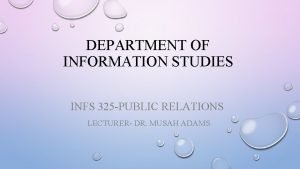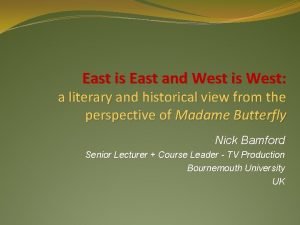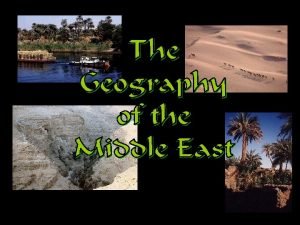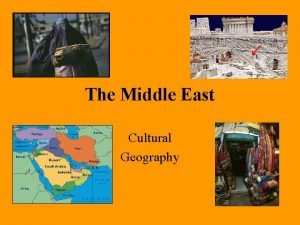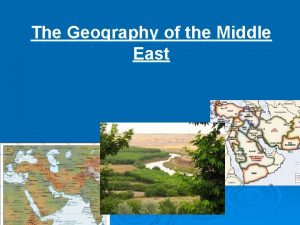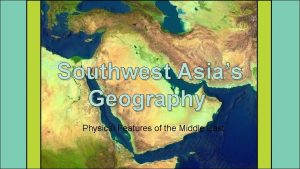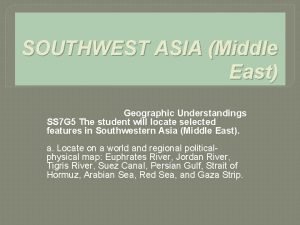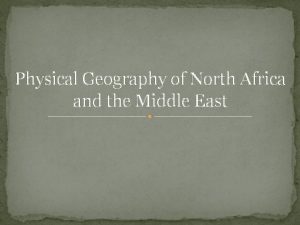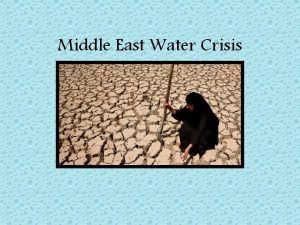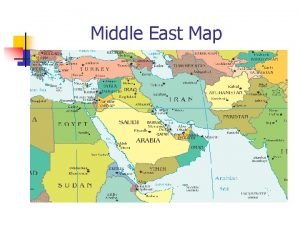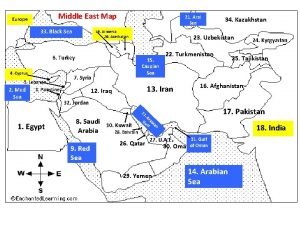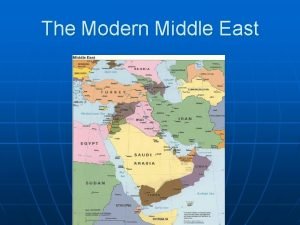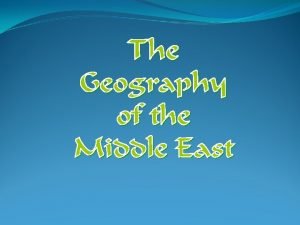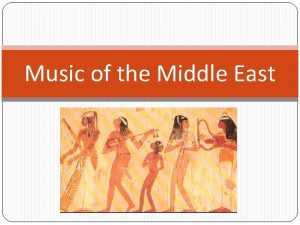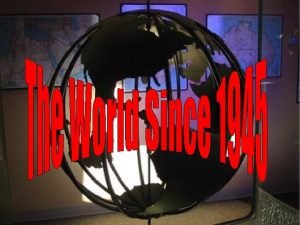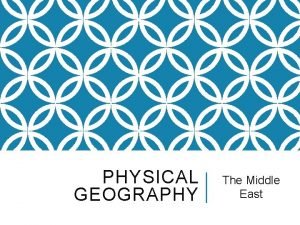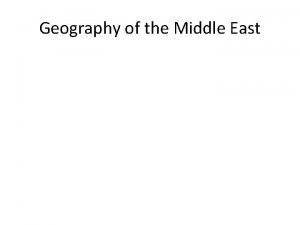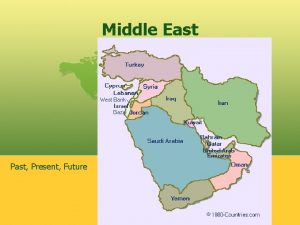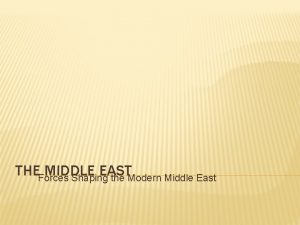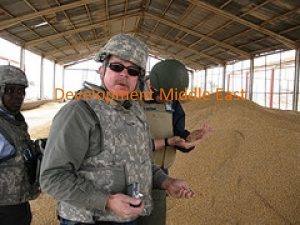Politics of the Middle East Islamic International Relations













- Slides: 13

Politics of the Middle East Islamic International Relations

An Islamic Theory? • Proctor: Islam and International Relations (1965) the notion that Islam could be influential upon international affairs and should therefore be an independent subject of study was clearly invalid • Buzan: Why is there no non-Western IR theory? • Fawcett: Religion must be taken into account in International Relations theorising without rejecting previous theories or disregarding research methods developed in the 20 th Century


• al siyasi al Islami (Islamic political order) • Extra-rational agency, Umma, Assabiya, • laws governing society are primarily normative as opposed to prescriptive • Abdul Hamid Abu Sulayman opened the door for an exclusively Islamic concept of the international in, Towards an Islamic Theory of International Relations

Functions of Theory • Theories disagree on what constitutes the state and its sovereignty • Non-Westphalian Approach: Diminished value of the Nation-State, • Two Concepts of The State and Sovereignty – 1) Umma, One indivisible community bound through a Assabiya, – 2) Inside/ Outside • Dar al Harb (Realm of War, The Other) • Dar al Islam (Realm of Islam)

Ontology • (What you know) • All theories accept Tawhid (oneness of God) • Theories differ on methodology – Quran (Word of God dictated to Muhammad) – Sunna (Sayings and deeds of the Prophet) – Fiqh ( Islamic Juris-prudence 5 Sunni, 3 Shi’ite) Ijtihad (personal judgment)

Islamic IR Schools • Classical ___ Realism • Reformist ___ Liberalism • Revolutionary ___ Critical

Classical Approach and the 1 st Debate • Islam’s formative period, Origins 7 th C to Conquest • Related to Classical Hobbesian Realism • Persistent existential struggle • Literalist interpretation: Divine sources require no human intervention • Defensive and Offensive Jihad (the lesser) • Perpetual Dar al Harb/ Dar al Islam conflict

Reformists and the 2 nd Debate • 19 th C Salafism (learning from the rightly guided caliphs) • Jamal al Din al Afghani • Emerged as a result of Islamic decline • Return to the Salafs. Mediation between the rejectionists and the modernists • Related to the Lockean tradition of cautious cooperation • Islam support both universalism and transnationalism?

Reformists Revisions • Revised Dar al Harb/ Dar al Islam: alternate intersubjective worlds coexisting without one asserting its hegemony upon the other through a superior assabiya • Dar al Ahd (realm of treaties) • The Umma is a meta-physical concept, Boundaries less constraining • Revival of Ijtihad – Traditionalist: judgment on matters without the consent of the ulema is heretical – Reformist: It is necessary to contend with the modern world

Salafi Jihadism, 3 rd Debate • Theoretical paradigms affected by world events, WW 1, end of the Caliphate • Encourages ijtihad (personal reasoning) not to engage with modernity but to replace it with the ancient model • SJ use ijtihad as a tool to bypass the ulema • Important theorists, Sayid Qutb, Hassan al-Banna , Maulana Maududi • Qutb asserted that Muslims have lost their way and Islam has been altered to the point of only existing in the minds of the revolutionaries

• Jihad, then, is not just a matter of survival but the only tool for achieving peace, as there can be no peace without a global Islamic political order • Early Muslim Brotherhood • Egyptian Islamic Jihad

Assassination of Sadat, 4 th Debate Crackdown on Islamist groups and Islamic institutions marginalization, subjugation, radicalization Muslim Brotherhood disavow violent action More concentration on traditional politics and social services • Exodus to Afghanistan, the Afghan Arabs • Ayman al Zawahiri, Osama bin Laden, Abdullah Azzam • •
 Polis bsc
Polis bsc Kalahari desert on africa map
Kalahari desert on africa map Employee relations in public relations
Employee relations in public relations Wind is horizontal movement of air
Wind is horizontal movement of air East is east and west is west
East is east and west is west Middle east latitude
Middle east latitude Cultural geography of the middle east
Cultural geography of the middle east Why is it called the middle east
Why is it called the middle east Physical features in the middle east
Physical features in the middle east Why is the middle east so dry
Why is the middle east so dry Physical geography of north africa
Physical geography of north africa Middle east countries and water
Middle east countries and water Middle east map
Middle east map Black sea on middle east map
Black sea on middle east map


